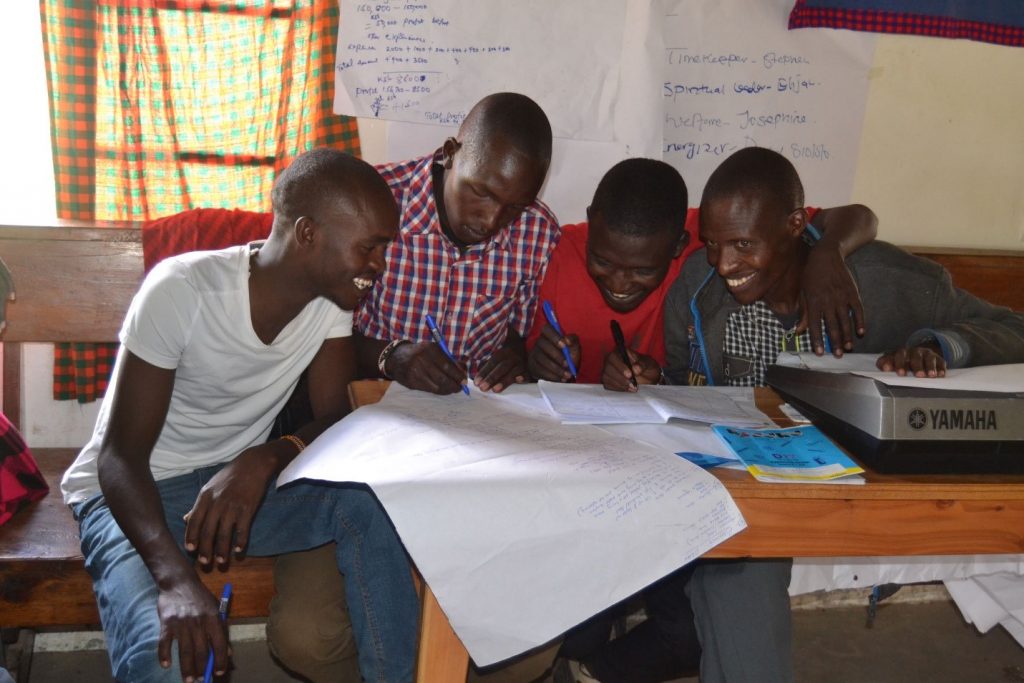When looking for leadership on sustainability, the search typically begins with big businesses like Safaricom and Unilever together with their leaders. The search tends to focus on firms and leaders who have large platforms from which they can announce their commitments to changing products, processes, and people as they execute their vision for sustainability. At times these announcements have been backed up by significant investments in time and energy.
Without adequate entrepreneurship education and business support, Africa faces a very uncertain future. This might sound like a bold statement but looking at these interesting statistics about Africa,
• Nigeria is expected to be the 3rd most populous country by 2050 with a population of over 300 million while several other African countries are projected to have more than doubled their population in the same period.
• Africa, in general, is expected to account for more than half the world’s population growth by 2050.
• 9 out of 10 working African youth are poor or near-poor and over the next 10 years, only one in four of Africa’s youth are expected to find a wage job at best.
Africa’s youth population is growing at such an alarming rate that trumps any existing initiatives to adequately cater for them. Something needs to be done urgently and I believe entrepreneurship is one of the main sustainable options.
As the challenge to balance people, profit and environment become hard to maintain, the entrepreneur, a visionary and solution provider, is proving the power of business and markets. They have the power to not only solve crises but create a new business model. One that starts with a vision of sustainability at the core and captures an ecosystem of customers along the way that shows a sustainable business model.
Take for example the food sector, one that is rife with consumer scandals and resource challenges, where large brands have been largely focused on risk mitigation, resource efficiency, and crisis prevention. For traditional “big food” players, the challenge is compounded by the size and scale of their supply chains plus the speed with which other markets are playing. Governments need to identify, assess and engage tens of thousands of farmers on one end of the value chain while creating thousands of new distribution points that will deliver the product to the market. There is no time to slow down or go back to do things “right”.

Entrepreneurs that once occupied the long trail of the economy, and applauded for being “nice” as a result, are now gaining the interest of the traditional business as they are now seen as market leaders. Leaders who have created products and services with loyal ecosystems of consumers, and markets that are moving from niche to scale. Dynamics that are leading to a shift in mindsets across the board.
Consumers have begun looking for safe, reliable, high-value products. Employees are now willing to leave comfortable lifestyles and jobs behind for the prospect of building a new model for change. Furthermore, governments are now investing significant time and energy to help solution providers incubate and scale their business models while looking for ways to decouple their economies from models that are seen as risky, resource-intensive or destructive.
These shifts are helping entrepreneurs validate their vision and markets, creating the awareness needed to help reach consumers, bringing economies of scale and profit and most importantly bring exit opportunities.
As the African continent transitions towards maturity, where conservation of “balanced growth” replace those of “growth at all cost”, the opportunity for entrepreneurs to develop new markets for sustainability has never been better.
It is an opportunity being supported by consumers who are willing to pay a premium. Also, the government now understands that the challenges that have plagued them for years have become a threat to their development models hence embracing sustainable entrepreneurs is crucial.

If entrepreneurship is this important, more African youth need to acquire the skills required to build Africa’s future. Having experienced firsthand how our educational system fails to prepare graduates for a lifetime of problem-solving, the African youth should be at the forefront to drive initiatives that will help groom and support Africa’s next generation of innovators.
Does Africa need to keep breathing? Obviously Yes. Therefore, African youth needs to take advantage of sustainable entrepreneurship to close the gaps that exist in the social-economic and environmental growths. Youth have immense greatness within them which needs to be unearthed through opportunities in entrepreneurship. These opportunities will paint Africa as the brightest continent and place it at the peak of success that no other continent has ever been to.



